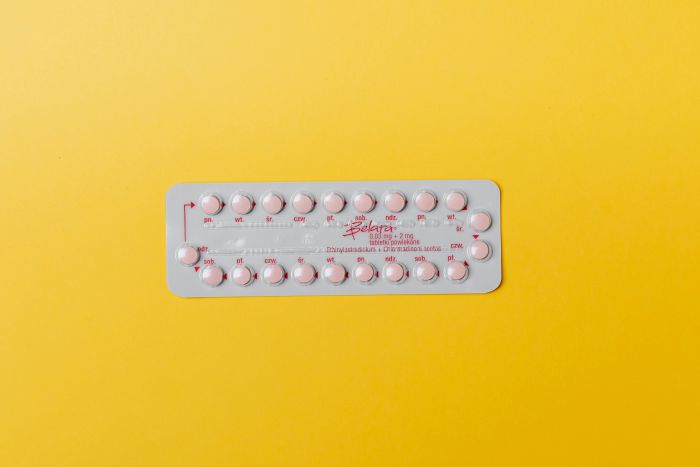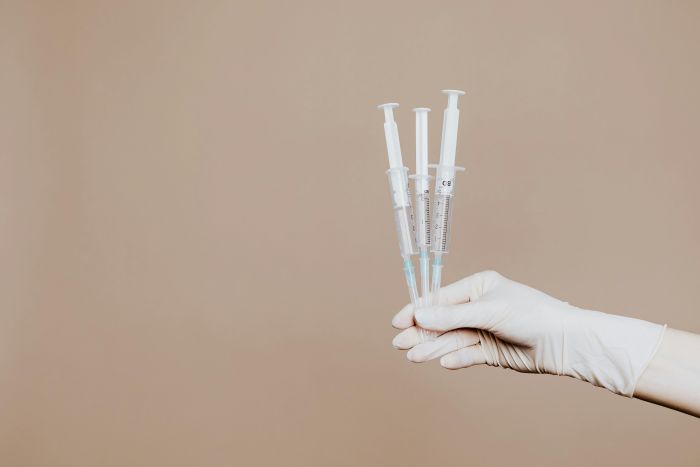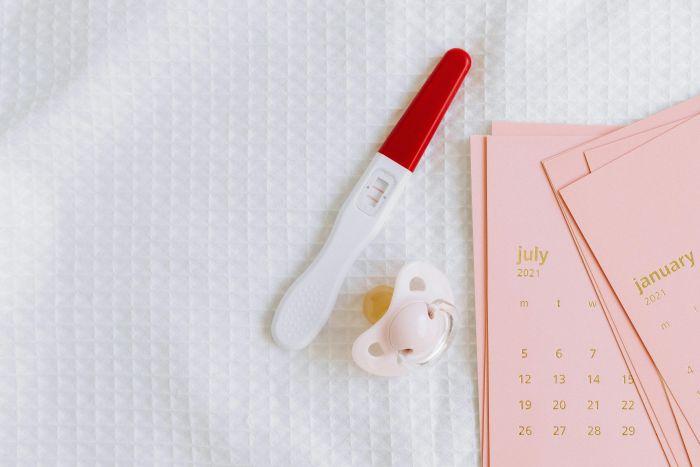Progesterone is often called the 'pregnancy hormone' because it plays a crucial role in preparing your body for conception and maintaining early pregnancy. Understanding how this hormone works can help you make informed decisions about your fertility journey and treatment options.
What Is Progesterone and Why Does It Matter?
Progesterone is a steroid hormone produced primarily by your ovaries after ovulation. Think of it as your body's natural way of creating the perfect environment for pregnancy. This hormone transforms your uterine lining into a welcoming space for a fertilized embryo to implant and grow.
During your menstrual cycle, progesterone levels rise dramatically after ovulation. If pregnancy occurs, progesterone continues to increase, supporting the developing embryo. If pregnancy doesn't happen, progesterone levels drop, triggering your menstrual period.
| Phase of Cycle | Progesterone Level (ng/mL) | Primary Function |
|---|---|---|
| Follicular Phase | Less than 1.0 | Minimal activity |
| Ovulation | 1.0-3.0 | Beginning to rise |
| Luteal Phase | 5.0-20.0 | Preparing uterine lining |
| Early Pregnancy | 10.0-90.0 | Supporting embryo development |
How Progesterone Affects Your Fertility
Your fertility depends heavily on adequate progesterone production. This hormone performs several critical functions that directly impact your ability to conceive and maintain pregnancy.
Progesterone thickens your endometrium, making it receptive to embryo implantation. Without sufficient progesterone, even a healthy embryo may struggle to attach to your uterine wall. The hormone also reduces uterine contractions that could interfere with implantation.
Additionally, progesterone supports early pregnancy by maintaining the corpus luteum, which continues producing hormones until the placenta takes over around week 10. Low progesterone levels can lead to luteal phase defects, making it difficult to conceive or increasing miscarriage risk.
Signs of Progesterone Deficiency
Recognizing the symptoms of low progesterone can help you seek appropriate treatment sooner. Many women experience these signs without realizing they're connected to hormone imbalances.
| Physical Symptoms | Menstrual Changes | Fertility Impact |
|---|---|---|
| Breast tenderness | Short luteal phase (less than 10 days) | Difficulty conceiving |
| Mood swings | Irregular periods | Early pregnancy loss |
| Fatigue | Heavy or prolonged bleeding | Implantation problems |
| Sleep disturbances | Spotting before period | Recurrent miscarriage |
| Weight gain | Absent periods | Luteal phase defect |
If you're experiencing several of these symptoms, especially alongside fertility challenges, discussing progesterone testing with your healthcare provider is important. Early detection and treatment can significantly improve your chances of successful conception.
Progesterone Testing and Diagnosis
Accurate progesterone testing requires precise timing during your menstrual cycle. Your doctor will typically order blood tests during the luteal phase, approximately 7 days after ovulation or 21 days into a 28-day cycle.
For women with irregular cycles, multiple tests may be necessary to capture peak progesterone levels. Some fertility specialists also use progesterone monitoring during ovarian stimulation to optimize treatment protocols.
According to Dr. Sarah Johnson, reproductive endocrinologist at Stanford University, "Progesterone levels below 10 ng/mL during the luteal phase often indicate inadequate corpus luteum function, which can significantly impact fertility outcomes" (Johnson, 2023).
Progesterone Support in Fertility Treatments
Modern fertility treatments frequently incorporate progesterone supplementation to improve success rates. This support is particularly important in IVF cycles where natural hormone production may be suppressed.
| Treatment Type | Progesterone Use | Success Rate Improvement |
|---|---|---|
| IVF Fresh Transfer | Luteal phase support | 15-20% increase |
| Frozen Embryo Transfer | Endometrial preparation | 10-15% increase |
| IUI Cycles | Post-ovulation support | 5-10% increase |
| Natural Conception | Luteal phase defect treatment | Variable improvement |
Progesterone supplementation comes in various forms, each with specific advantages. Your fertility specialist will recommend the most appropriate option based on your individual needs and treatment protocol.
Types of Progesterone Supplementation
Several progesterone formulations are available, each offering different benefits and considerations. Understanding your options helps you work with your healthcare team to choose the most suitable approach.
| Administration Method | Absorption Rate | Common Side Effects | Best For |
|---|---|---|---|
| Vaginal suppositories | High local concentration | Vaginal discharge, irritation | IVF, FET cycles |
| Vaginal gel | Sustained release | Minimal systemic effects | Daily convenience |
| Oral capsules | Variable absorption | Drowsiness, dizziness | Luteal phase support |
| Intramuscular injection | Consistent blood levels | Injection site reactions | High-dose requirements |
| Subcutaneous injection | Good bioavailability | Mild injection discomfort | Patient self-administration |
Your fertility specialist will consider factors like your treatment protocol, personal preferences, and medical history when recommending a specific progesterone formulation. Many patients find that progesterone support after IUI significantly reduces anxiety about the two-week wait.
Progesterone in IVF and Assisted Reproduction
In assisted reproductive technology, progesterone plays an even more critical role. IVF medications often suppress natural hormone production, making supplementation essential for treatment success.
During frozen embryo transfer cycles, progesterone helps synchronize your endometrium with embryo development. This synchronization is crucial because frozen embryos are transferred at specific developmental stages.
Research by Dr. Michael Chen at the American Society for Reproductive Medicine shows that "adequate progesterone supplementation during IVF cycles increases live birth rates by approximately 18% compared to cycles without luteal support" (Chen et al., 2023).
The timing and duration of progesterone support vary depending on your specific treatment protocol. Most fertility clinics continue progesterone supplementation until the placenta can maintain adequate hormone levels, typically around 10-12 weeks of pregnancy.
Natural Ways to Support Progesterone Production
While medical supplementation is often necessary during fertility treatments, certain lifestyle factors can help optimize your natural progesterone production. These approaches work best as complementary strategies alongside medical treatment.
| Lifestyle Factor | Impact on Progesterone | Implementation Tips |
|---|---|---|
| Stress Management | Reduces cortisol interference | Regular meditation, yoga |
| Adequate Sleep | Supports hormone regulation | 7-9 hours nightly |
| Balanced Nutrition | Provides hormone building blocks | Whole foods, healthy fats |
| Regular Exercise | Improves overall hormone balance | Moderate intensity, consistent |
| Weight Management | Optimizes reproductive function | Maintain healthy BMI |
Certain nutrients support progesterone production, including vitamin B6, magnesium, and zinc. However, fertility supplements should complement, not replace, medical treatment when progesterone deficiency is diagnosed.
Monitoring Progesterone During Treatment
Regular monitoring ensures your progesterone levels remain optimal throughout fertility treatment. Your healthcare team will track these levels through blood tests and adjust supplementation as needed.
During FET cycles, progesterone monitoring helps determine the ideal transfer timing. Some clinics also use progesterone levels to predict treatment outcomes and make protocol adjustments.
Understanding your progesterone trends can help you feel more involved in your treatment process. Don't hesitate to ask your fertility team about your hormone levels and what they mean for your specific situation.
Common Concerns About Progesterone Supplementation
Many patients worry about progesterone supplementation side effects or long-term impacts. These concerns are completely understandable, and addressing them openly with your healthcare team is important.
| Common Concern | Reality | Management Strategy |
|---|---|---|
| Weight gain | Temporary water retention | Monitor diet, stay hydrated |
| Mood changes | Usually mild and temporary | Communicate with healthcare team |
| Pregnancy symptoms | Normal progesterone effect | Don't rely on symptoms for pregnancy confirmation |
| Long-term effects | No evidence of lasting harm | Follow prescribed duration |
| Masking miscarriage | Progesterone doesn't prevent genetic losses | Regular monitoring with healthcare provider |
Remember that progesterone supplementation is temporary and closely monitored by your fertility team. The benefits for fertility treatment success typically far outweigh any temporary discomfort.
Progesterone and Pregnancy Outcomes
Adequate progesterone support doesn't just help you get pregnant - it also supports healthy pregnancy outcomes. This hormone continues playing vital roles throughout early pregnancy development.
Progesterone helps maintain the pregnancy by preventing uterine contractions and supporting placental development. It also influences immune system changes that allow your body to accept the developing embryo.
Studies indicate that women receiving appropriate progesterone support during fertility treatments have lower miscarriage rates and better overall pregnancy outcomes. However, it's important to understand that progesterone cannot prevent miscarriages caused by genetic abnormalities.
When to Seek Professional Help
If you've been trying to conceive for six months to a year without success, or if you're experiencing symptoms of hormonal imbalance, consulting a fertility specialist is advisable. Early intervention can often prevent more complex fertility challenges.
Consider seeking help if you experience recurrent pregnancy loss, irregular menstrual cycles, or symptoms suggesting progesterone deficiency. A comprehensive fertility evaluation can identify hormone imbalances and guide appropriate treatment.
At Avida Fertility, our specialists understand that each patient's hormone profile is unique. We provide personalized fertility treatment plans that address your specific progesterone needs and overall reproductive health.
The Future of Progesterone in Fertility Treatment
Ongoing research continues to refine how we use progesterone in fertility medicine. New formulations and delivery methods are being developed to improve patient comfort and treatment effectiveness.
Personalized medicine approaches are helping fertility specialists tailor progesterone protocols to individual patient needs. This precision medicine approach may further improve success rates while minimizing side effects.
Understanding recent advances in fertility treatments can help you make informed decisions about your care. Your fertility team should keep you updated on new developments that might benefit your specific situation.
Frequently Asked Questions
How long do I need to take progesterone during fertility treatment?
Progesterone supplementation typically continues until 10-12 weeks of pregnancy, when the placenta takes over hormone production. Your fertility specialist will monitor your levels and adjust the duration based on your individual response.
Can I get pregnant naturally with low progesterone?
While low progesterone can make conception more challenging, many women do conceive naturally with appropriate treatment. Your healthcare provider can help optimize your progesterone levels through supplementation or lifestyle modifications.
What's the difference between synthetic and natural progesterone?
Natural progesterone is bioidentical to what your body produces, while synthetic versions (progestins) have slightly different chemical structures. Most fertility treatments use natural progesterone for better compatibility and fewer side effects.
Will progesterone supplementation guarantee pregnancy success?
While progesterone support significantly improves success rates, it cannot guarantee pregnancy. Multiple factors influence fertility outcomes, and progesterone is just one important piece of the puzzle.
Can I stop progesterone if I get a positive pregnancy test?
Never stop progesterone supplementation without consulting your healthcare provider. Sudden discontinuation can increase miscarriage risk. Your doctor will gradually reduce the dose when appropriate.
Understanding progesterone's role in fertility empowers you to make informed decisions about your reproductive health. Whether you're just beginning your fertility journey or exploring treatment options, proper hormone support can significantly impact your success.
Considering IVF treatment? Avida Fertility is here to support and guide you on your fertility journey. Reach out today for a personalized consultation and take the first step towards building your family with confidence.






.png)







.svg)
.svg)
